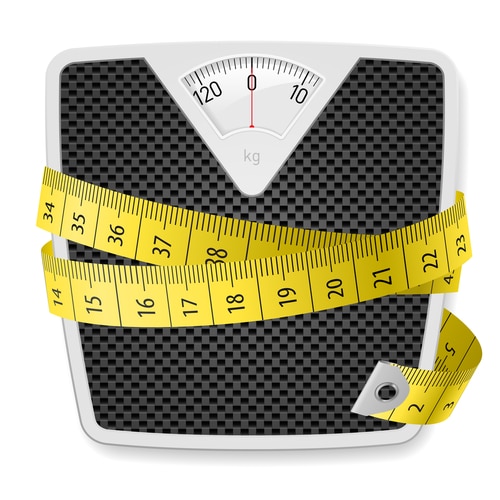
Now a new study shows it’s not just how long you sleep that’s important – sleep quality and having a consistent sleep schedule matters too. According to research published in the American Journal of Health Promotion, going to bed and getting up at the same time every day is better for your body composition. To test this theory, researchers tracked the sleep and activity patterns of more than 300 young, healthy women for seven days.
Their findings? Women who had a consistent sleep schedule, went to bed and woke up at the same time daily, had a more favorable body composition with lower amounts of body fat compared to women with less established sleep and wake times. Women that had greater variation in when they turned in at night and when they awoke on a day-to-day basis had higher levels of body fat. The researchers also found sleeping less than 6.5 hours or more than 8.5 hours daily was linked with more body fat.
Why Sleep Consistency is Important for Weight Control
One theory as to why consistent sleep times help with weight control relates to the workings of your internal biological clock. When you have inconsistent sleep and wake times it “throws off” your internal timekeeper. This can lead to a reduction in insulin sensitivity, an increase in cortisol and an environment that’s favorable for fat storage.
As this study points out, sleep quantity is important for weight control but so is having consistent sleep habits, going to bed and waking up at the same time. Having a consistent sleep and wake time improves sleep quality as well. When you go to sleep at the same time each night, your brain automatically knows when to “turn off” and you fall asleep faster.
Sleep quality is another variable that seems to be important for controlling your weight. If you lie in bed for seven to eight hours but toss and turn most of the night, you’re not going to get the benefits of a good night’s sleep. Having a consistent sleep schedule improves sleep quality too so you get the full benefits a good night’s sleep.
What Can You Take Away From This Research?
This study was very short in duration, only a week, and the women were all young and healthy so it’s hard to draw firm conclusions based on one study – but combine this with the results of other studies showing the importance of sleep for health and weight control and it’s not a stretch to say that consistently getting a good night’s sleep is good for body composition.
Yet another study showed that dieters trying to lose weight that skimped on sleep lost a similar amount of weight to those that got a full night’s sleep but they lost less body fat. They also felt hungrier. So if you’re not getting enough quality sleep it may be harder to lose body fat.
Sleep Quality Is Also Important for Overall Health
Research has also linked short sleep duration and poor quality sleep with an increased risk for other health problems including heart disease, type 2 diabetes and an increased risk for mortality. Who knew sleep was so important?
The Bottom Line?
Sleep quality is important for health and for healthy body composition. Establish a set sleep schedule that works for you and gives you no less than seven to eight hours of sleep a night – then stick with it. Get up at the same time on the weekend too to train your brain to turn off at a set time so you can get more restful sleep. You’ll feel better and look better too.
References:
Science Daily. “Consistent Bed, Wake Time Linked to Healthier Weight”
Science Daily. “Sleep Loss Limits Fat Loss”
Harvard School of Public Health. “Sleep Deprivation and Obesity”
Arch. Intern. Med. 165 (8): 863-7. doi:10.1001/archinte.165.8.863. PMID 15851636.
PLoS Med. 1 (3): e62. doi:10.1371/journal.pmed.0010062.
European Journal of Preventive Cardiology July 3, 2013, 2047487313493057.
Related Articles By Cathe:
How Losing Weight and Belly Fat Affects Sleep Quality

